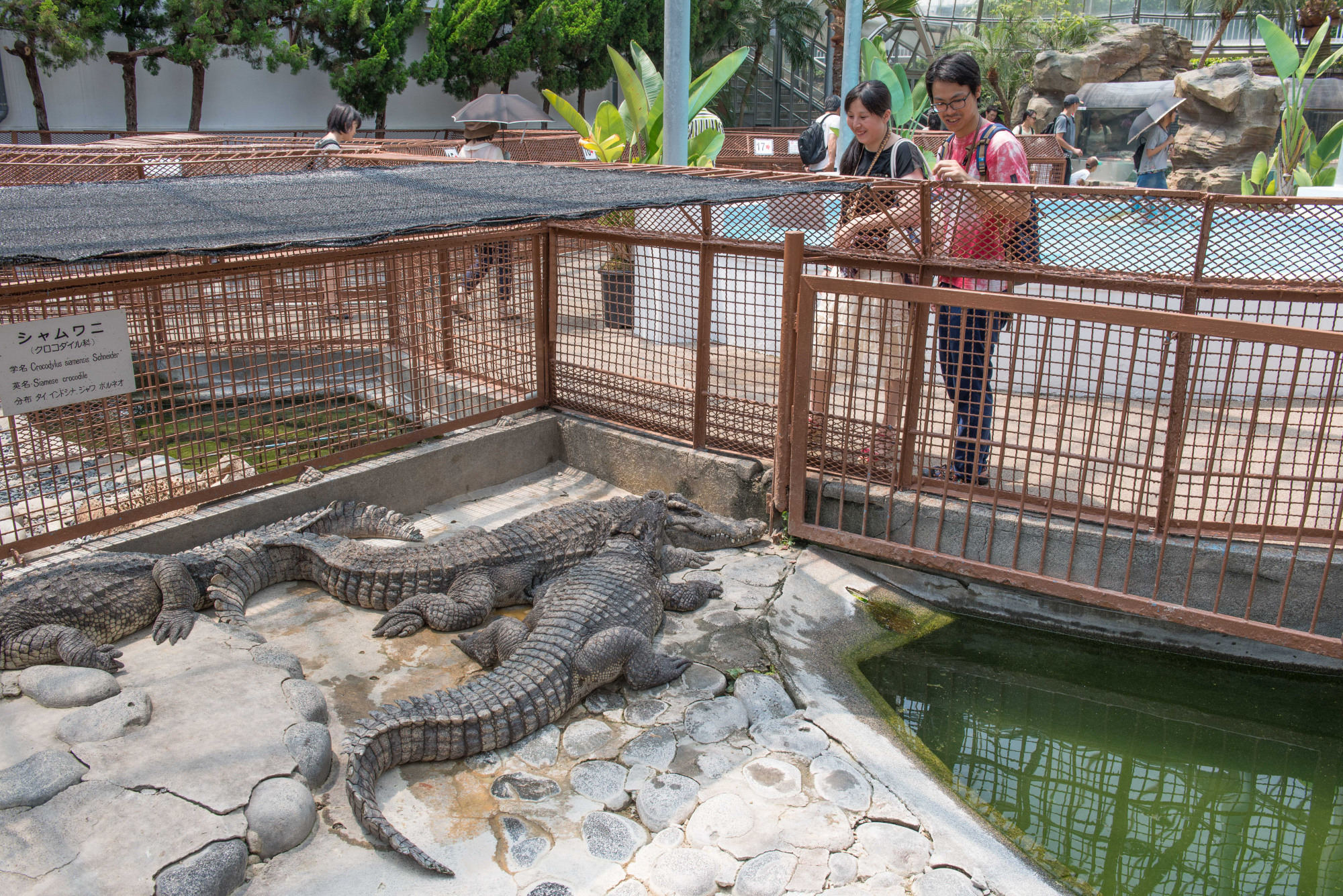The Izu Peninsula, just two hours from Tokyo by train, is cherished for the slightly higher temperatures it enjoys compared to the capital. Mild winters and picturesque vacation homes attract the wealthy, brightly lit sanatoriums and retirement complexes draw the elderly, and white-sand beaches draw the surfers and sun worshippers.
The train ride from Tokyo to Atagawa, in the heart of Izu's torrid zone, follows the peninsula's eastern coastline, between mountain slopes and the Pacific Ocean. Atagawa is one of many small stops along the route, a town built on a narrow, rather steep declivity between rock landforms that have limited its expansion. Rows of phoenix palm, flowering bougainvillea and cactus growing in the forecourts of hotels make this hot-springs resort feel almost subtropical. Adding southern warmth to the location are the surrounding slopes planted with orchards of mandarin oranges and an indigo-colored sea below.
Just off the narrow road that descends from the station to the seafront, gouts of sulfuric steam rise from vents surrounding a small shrine, its wooden gate discolored and slightly warped by the heat. Behind the shrine were pools of boiling spring water and people were lowering baskets of coins into pools of scalding water. A plaque explains that cleaning money in mineral water promotes wealth.



